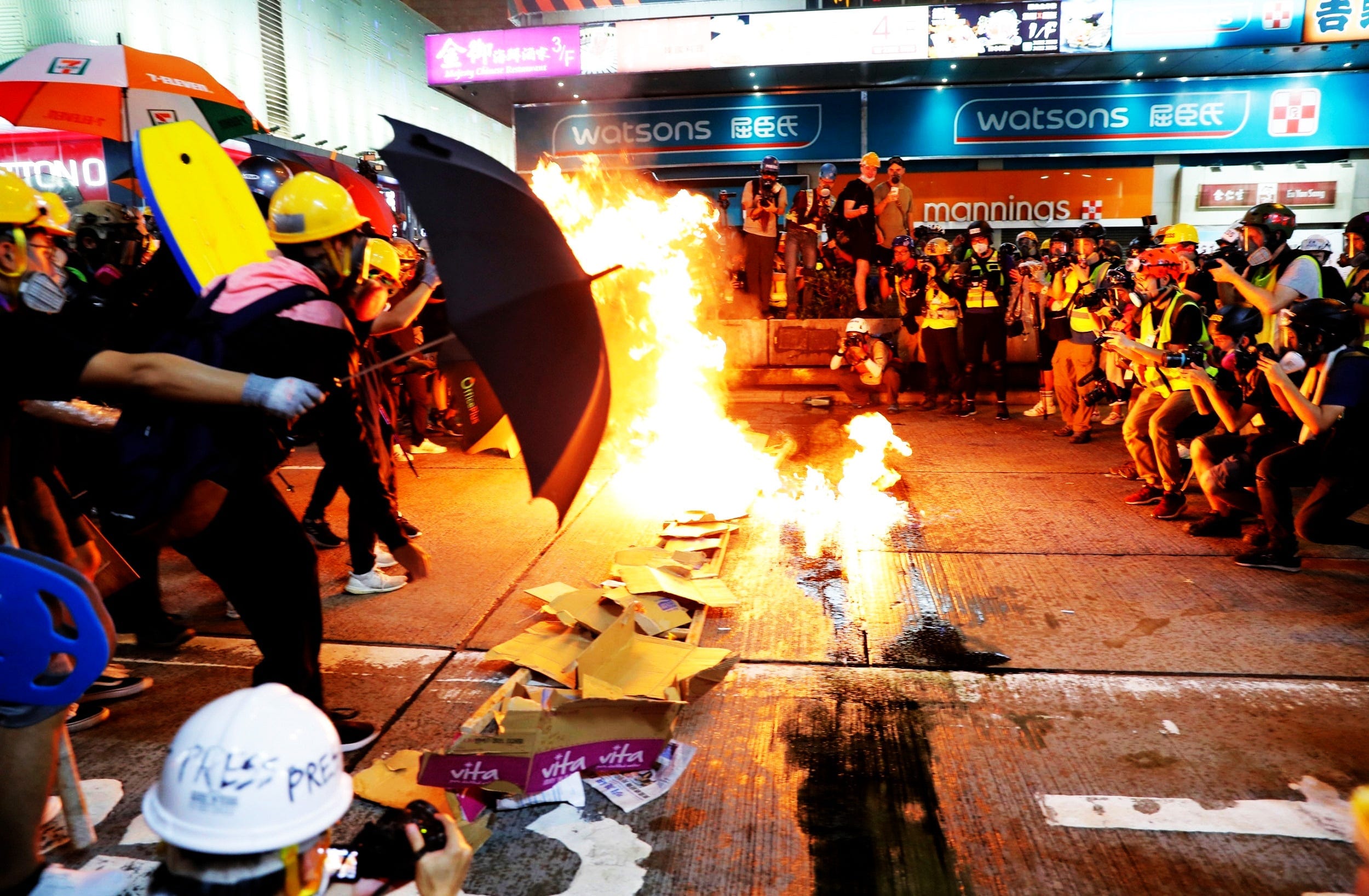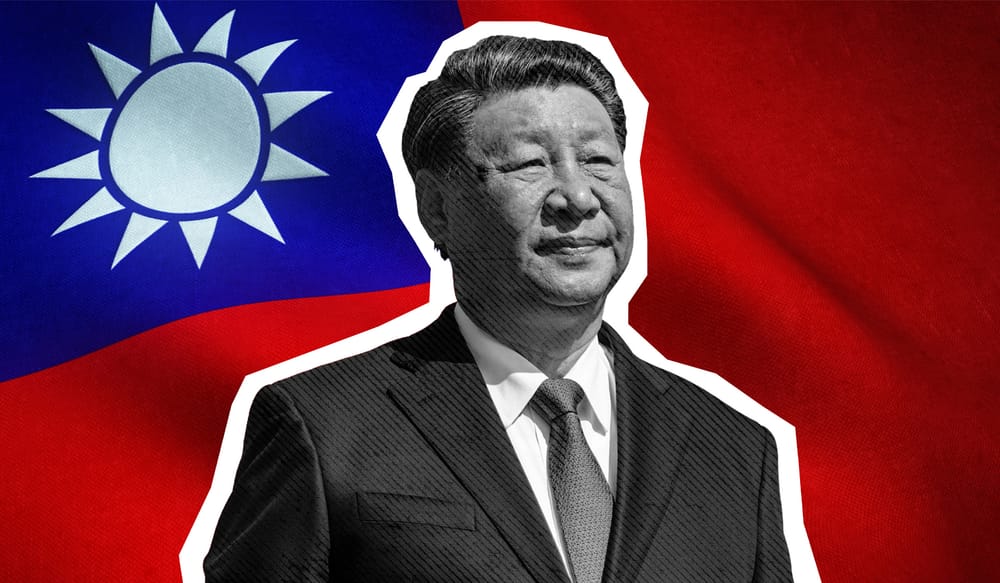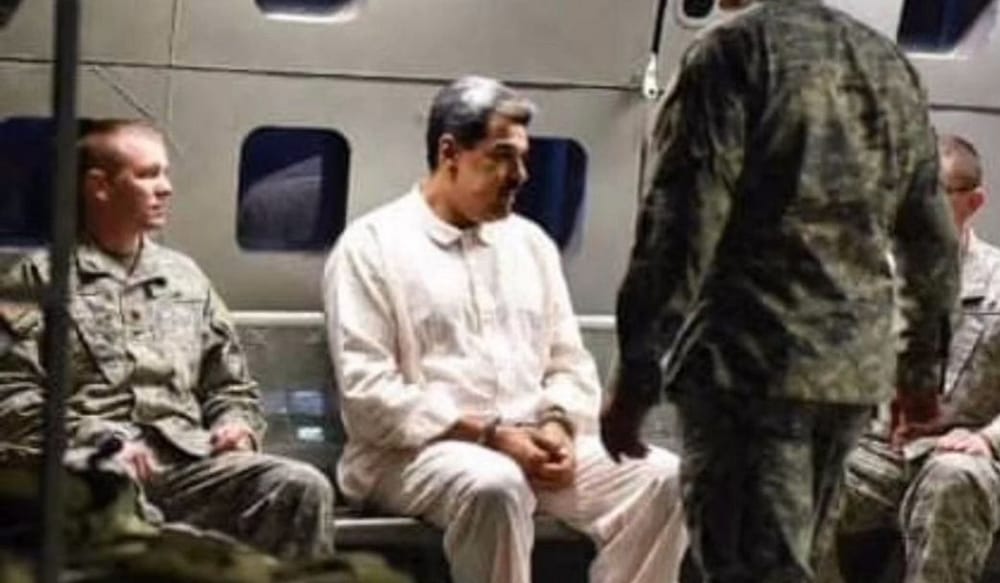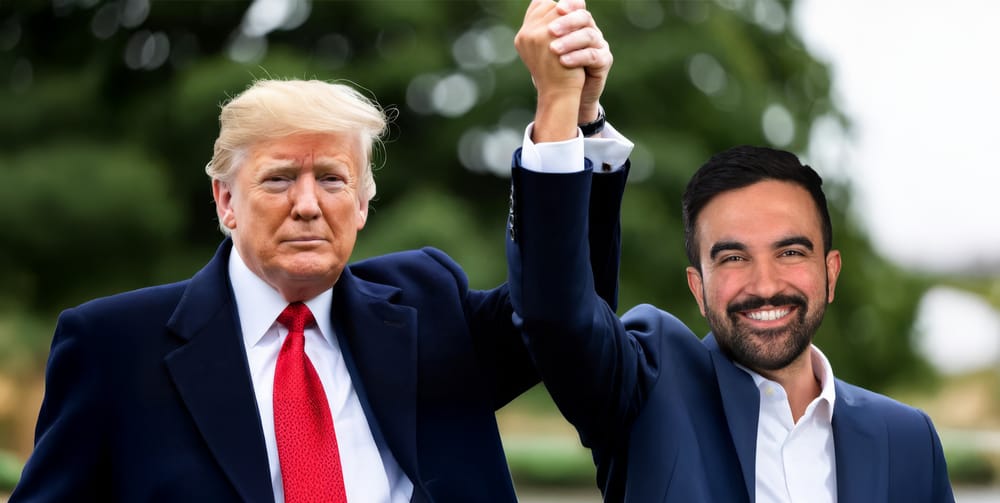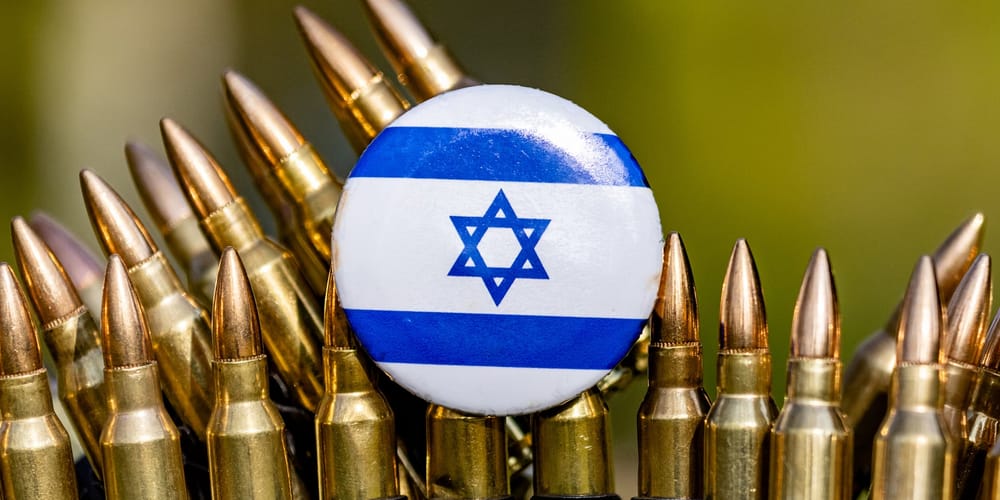When normally peaceful protests in Hong Kong turned into a raid on Legislative Council on July 1st - two weeks after Carrie Lam declared suspension of the controversial Extradition Bill - I found the events so perplexing that it induced a certain suspicion that perhaps Beijing was responsible, clandestinely attempting to ruin the reputation of the protesters and justify a tougher stance against the city.
Why would, thus far civil, peaceful demonstrators turn into vandals on a rampage?
Today, however, given how long and how recklessly disruptive and violent these protests have become, it is clear that the escalation was planned as a way to use the momentum from the earlier demonstrations to open a new front in a fight not against the ill-conceived bill but for broader democratic freedoms - in a moment favorable for the protesters, as a confluence of political factors pushed Beijing against the wall, greatly limiting its maneuvering space.
To crack down or not to crack down – that is the question
As I mentioned, I found the rapid escalation from generally peaceful protests to riots and trashing of the LegCo rather surprising and reckless, especially since the government appeared to be backing down - and the Extradition Bill was declared dead.
However, observing the events in the subsequent few weeks, it's become clear that protesters were emboldened by the apparent withdrawal by the authorities and now attempt to force Beijing's hand to get more than they had originally bargained for.
The time to do it also appears to be quite right, as China is locked in a trade stand-off with the USA and is in desperate need for allies in its pushback against Donald Trump - but those are unlikely to be found in the West, especially if Beijing resorts to a violent crackdown on HK protesters.
As a result, Chinese leadership is walking the tightrope. The economy is taking a hit from American tariffs and the party needs to rally public support in preparation for tougher economic conditions ahead. And while Hongkongers might not exactly find a lot of cheerleaders on the mainland - especially with the information blackout - mishandling the matters in the wealthy enclave could undermine Xi Jinping himself. A tough crackdown by Beijing would hurt its interests abroad, what could, at best, leave China even more stranded as it is looking for support against the US or, at worst, lead to more restrictions or even sanctions from Western countries, further weakening the economy, eroding domestic support for the Communist party.
At the same time, however, doing nothing makes the leaders look weak. "How is it that the powerful CCP can't control just one, relatively small, city?" - some may ask. For similar reasons they can't give in to the demands because not only would it make them appear toothless but could potentially inspire ambitious opponents to their rule on the mainland itself.
If Hongkongers are able to win something through these riots why would others not attempt the same eventually?
It also suggests that there's more to the protests than blind recklessness of the youth and that their leaders deliberately elevated the tensions to prompt a response from Beijing and, as a result, elicit a stronger reaction of the West, should China attempt a violent intervention (in case it doesn't give in to their demands - what is unlikely).
However, Beijing already faced a similar dilemma 30 years ago at Tiananmen - and it ultimately rolled out the tanks, regardless of the repercussions.
Lessons from Tiananmen
Perhaps the incidents of 1989 should be a cautionary tale for Hong Kong. Despite thousands of victims, Chinese authorities faced relatively limited international backlash. Aside from public denouncements, the West continued to do business with the country as if nothing happened. Of course, at the time it was still believed that China would liberalize and democratize if given the chance to grow and prosper. Plus, nobody really wanted another international conflict just as the Cold War was ending and communist block was crumbling anyway.
That said, it is not very likely that the reaction to an intervention in Hong Kong would be much different today.
Yes, President Trump appears to be far more daring and far less self-restrained than his predecessors - and would likely welcome another opportunity to take a swipe at China. But he has to be pragmatic about American interests and the state of the economy as he is entering the election year. Europe is even more fragile and would certainly prefer to avoid taking any steps that would aggravate the global situation over matters that are essentially China's internal problems.
If the world's response to mass detentions of the Uyghurs - which might amount to as many as 3 million people - is relatively timid, it's not likely that serious measures would be employed over an intervention in Hong Kong.
The main problem for Beijing is not in a direct international backlash but rather in loss of reputation - especially if things get out of hand. Obviously, Beijing commands all the power necessary to subdue any number of protesters but once it decides to act, there's no telling how the events are going to unfold and how long they may take.
Brutal violence and armed presence in the streets of one of the most acclaimed modern cities in the world would be a huge blow to China and the ruling party. For that reason it would also be a direct threat to Xi Jinping, whose currently unassailable position might be in jeopardy if the matters spiral out of control.
Both sides are pushing the boundaries of their actions, waiting for the opponents to overreact.
If protesters engage in too much violence, too much destruction, then sympathy for their causes may erode, inviting Beijing's intervention that will be easily excused. Conversely, if the state intervenes in an excessive manner, Hong Kong protesters will become martyrs of liberty and democracy, while the CCP is going to end up with a label of a murderous regime - what may require its leaders to give their heads in order to salvage the country's reputation.
Which is why the state media have ramped up the rhetoric labeling recent bouts of violence as "terrorism". Considering its dictionary definition as "the unlawful use of violence and intimidation in the pursuit of political aims" it is quite understandable why Beijing wants to pin it on the protesters. Surely each nation has every right to protect itself from terrorists resorting to violence to push their political agenda?
While it wouldn't prevent international protests entirely, it would give the ruling party a way to save face. As a result, Hong Kong's pro-democratic camp has to tread carefully or it may be swept away with barely any voice of protest issued by the rest of the world.
Deadly miscalculation
It's quite obvious that Hong Kong's democratic groups wanted to invite some violence from the authorities, as it helps to paint their struggle in the right colors for the world to see. Peaceful mass protests have endeared them to the global audiences but did not exactly help their cause. After all, there are worse things than standing in the clean streets of a safe, prosperous, rich, modern city.
Unfortunately for them, they – as I explained in a recent article here – have made a crucial, and very dangerous, miscalculation.
Currently (and in the near-term) they have the upper hand. Leaders in Beijing have more to lose, especially in the current global political climate. They have to weigh their words and actions more carefully.
In the long run, however, Hong Kong is entirely dependent on China - it's just a fact. There's nothing that the city has that the rest of China does not have or cannot create.
So, while the protesters may be able to put CCP's Politbiuro in a bind today, they are effectively undermining the future of their city - not saving it.
Let's assume the ideal scenario for the protesters - that Beijing withdraws, universal suffrage is granted and the city can govern itself as a democracy. Its existence would still be dependent on business and trade conducted with China - something that Beijing has total control of. It could easily starve Hong Kong, requiring foreign companies to conduct their business via mainland Chinese cities.
Why would it yield to a foreign and openly hostile enclave if it has over a billion people who also need jobs and good livelihoods - and are no less capable?
In reality, it doesn't even need to do that, as those cities are already overtaking Hong Kong. The only scenario in which it could enjoy both democracy and prosperity is if China as a whole becomes a democratic country - but that is an entirely unrealistic vision.
Firstly, the asymmetry in power is just insurmountable - Beijing has infinitely more resources to quell discontent and destroy political opposition. Secondly, there's a gulf in perception between Hongkongers and the rest of China. Hong Kong has forever been the wealthiest city, a pearl of the British Empire. What its inhabitants see as problems is not relatable to over a billion of mainland Chinese who have only recently tasted prosperity, thanks to CCP's effective, technocratic governance. And because of that, the Communist party enjoys strong support. In fact, likely a majority support, what gives it (oh, the irony) a stronger democratic mandate than the pro-democracy groups have in Hong Kong.
This takes me to the final point...
Who’s the tyrant now?
If these protests are about democracy then why are they so deeply undemocratic? As long as they were conducted in a peaceful manner and drew hundreds of thousands - or even over a million people - a case could be made that they indeed reflected the sentiments of a large enough group of citizens, to allow them to be heard and considered.
But this is no longer the case.
Resorting to violence or obstructing vital transportation links - roads, MTR or the international airport is not democracy - it's tyranny of the self-righteous mob.
Not only is it an inconvenience to millions of Hongkongers as well as thousands of visitors and travelers who use Hong Kong as a transit hub - it's also a tangible cost imposed on their livelihoods, as the city's economy (and reputation) is going to suffer. People who did not condone these protests - and certainly not these methods - are now going to bear the consequences.
The argument that the protesters are fighting for their rights as well is hollow as democracy is built on common agreement not self-righteousness of a narrow group of usurpers who think they know best what everybody else needs. That's how dictatorships are established - and this is what the protesters engage in today.
They want to hijack the political discourse to portray the city as besieged by the evil Communist Party, when - in reality - there are many Hongkongers (possibly even a majority) who are generally pro-Beijing, because they are fully aware how their bread is buttered.
Three out of four Chief Executives of Hong Kong - including Carrie Lam - were actually born in the city, lived through the British rule, lived through the handover, engaged in governance and have risen to the top. They weren't parachuted from Beijing - they are Hongkongers themselves. Much like the commanders of the police force (with some officers being actually Caucasian Brits with decades of service pre- and post-1997).
Are all of them somehow agents of communist oppression? Or are they simply doing their jobs, trying to maintain law and order in the city that is - and has forever been - their home?
By leveraging violent provocations the protesters may have temporarily improved their political standing but inadvertently lost the moral high ground they built their arguments on. Democracy is not about throwing tantrums whenever you don't get your way but about building a broad consensus before you take action.
So, who is the real tyrant now? Those who trash the city, destroy its reputation and wreck its economy, while making loud demands, verging on extortion - or those trying to protect it and its future?
Which is, whether you like it or not, dependent on China.



